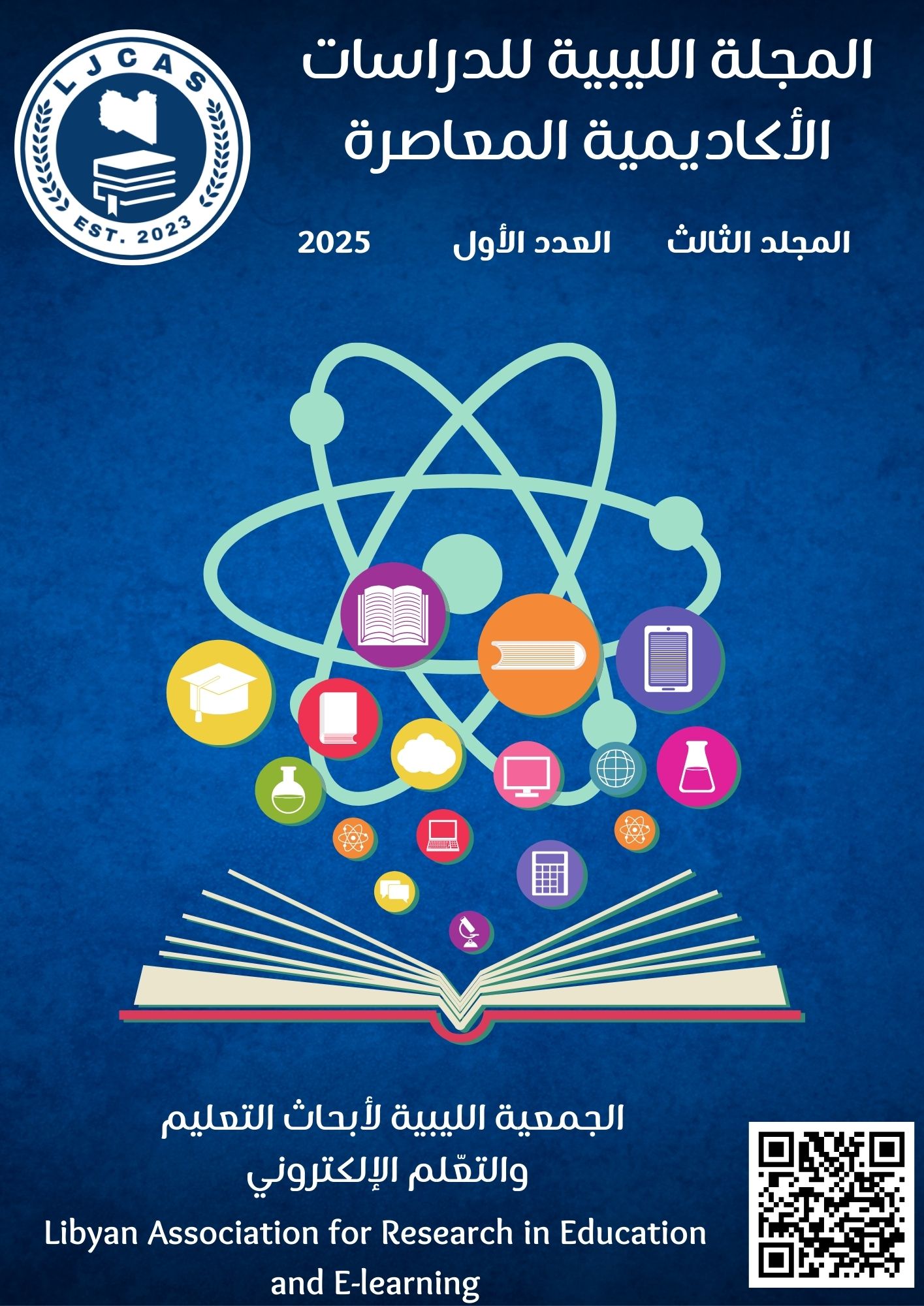Strategic Approaches to Language Learning: An Investigation of Cognitive and Metacognitive Strategy Deployment Among EFL University Students
الكلمات المفتاحية:
cognitive strategies، metacognitive strategies، EFL learning، self-regulation، language learning strategiesالملخص
This study investigates the use of cognitive and metacognitive strategies among second-year EFL students at Elmergib University.
Through classroom observations, semi-structured interviews, and reflective journals with 15 participants, the study examines how learners employ strategies such as repetition, elaboration, planning, and self-monitoring during language tasks, as well as the challenges they face in these strategies.
Findings reveal that repetition (80% of students), note-taking (70%), and self-questioning (80%) were the most prevalent strategies, while translation (40%) and evaluation (50%) were underutilized. The study highlights a critical gap in students' ability to select context-appropriate strategies, with 65% struggling with self-regulation during complex tasks. Peer interactions in group discussions emerged as a key facilitator of strategy use, with 70% of students benefiting from collaborative correction and clarification.
The research underscores the need for explicit strategy instruction, metacognitive awareness training, and technology-integrated collaborative learning in EFL curricula. These evidence-based recommendations aim to address the observed challenges in strategy selection and monitoring, ultimately promoting learner autonomy.







